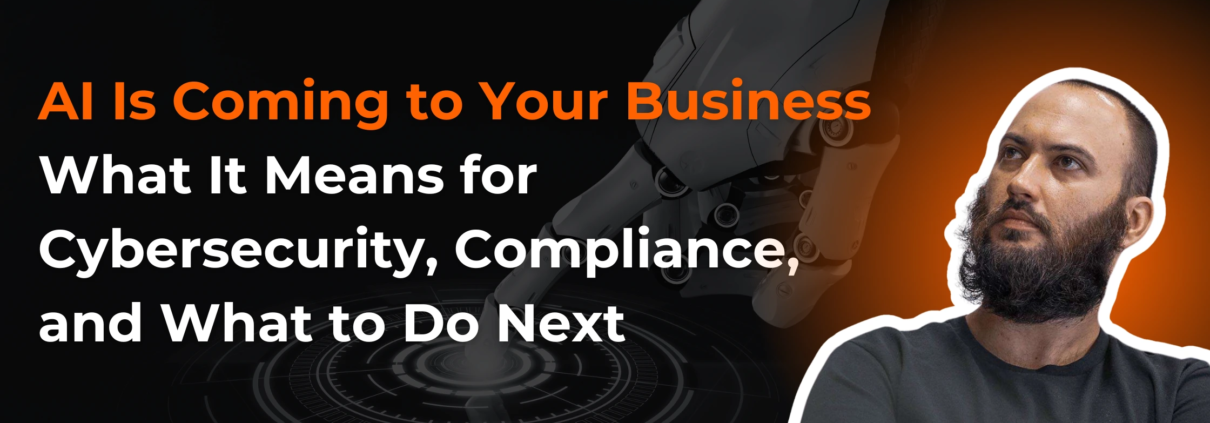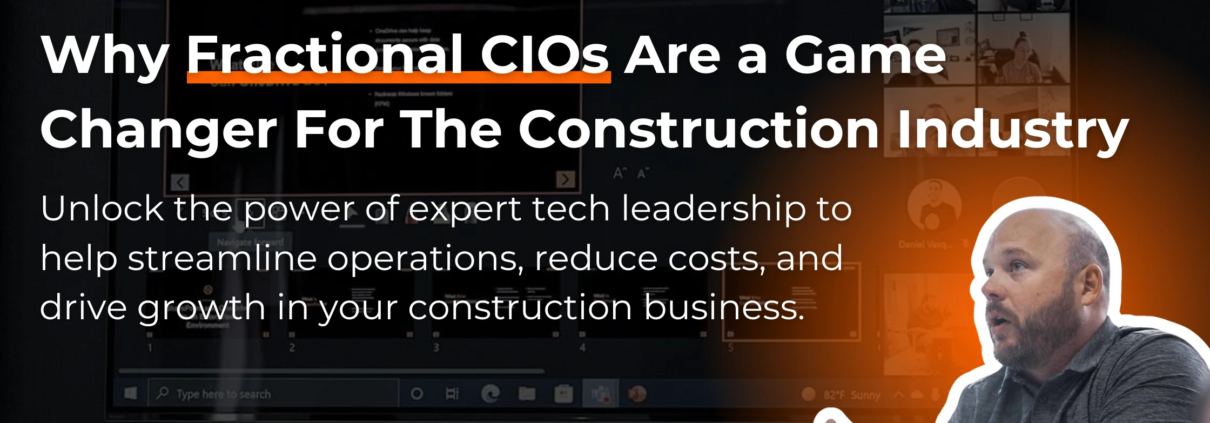AI Is Coming to Your Business. What It Means for Cybersecurity, Compliance, and What to Do Next
Most small business leaders aren’t afraid of hard work, but they are tired of constantly reacting to problems. That’s especially true when it comes to cybersecurity and compliance.
Now, artificial intelligence is adding a whole new layer of urgency.
At SYSTEMSEVEN, we don’t see AI as something to fear, but we do see it as something that demands preparation. Because the risks are already here. And they’re growing.
AI Isn’t Coming, It’s Already Here
Whether or not you’ve approved it, AI is already part of your business.
It’s showing up in ticketing systems, search engines, documentation platforms, and productivity tools. Your staff might already be using it to write emails, summarize notes, or process data.
It’s also working in the background of your cybersecurity tools, identifying threats, detecting patterns, and making decisions in real time.
Which is great, until it’s not.
Because without visibility and clear policies, AI can easily become a liability.
And when it comes to cybersecurity, liability means risk.
What’s Changing for Cybersecurity and Compliance?
The truth is, the risks introduced by AI are still evolving. But here’s what we’re seeing across industries already, especially for medical and highly regulated teams:
1. Phishing Emails Are No Longer Easy to Spot
AI tools are now able to write flawless, personalized phishing emails in seconds. They can mimic writing styles, use the right tone, and pull personal data from publicly available sources.
So even smart, cautious staff members are more likely to get tricked.
Without proper training and filters in place, businesses are becoming more vulnerable to social engineering attacks.
2. Alert Fatigue Creates a Blind Spot
The rise of AI-driven attacks means many IT teams are being flooded with alerts. But not all alerts matter.
If your filtering systems aren’t smart or your partner isn’t proactively managing them, your team will start ignoring the noise. And that’s when something important can slip through.
3. Cyber Insurance and Compliance Policies Are Shifting
Regulatory frameworks like HIPAA, PCI-DSS, and even cyber insurance policies are being rewritten in real time.
Healthcare organizations now need to prove not just that data is secure, but that it’s being stored, accessed, and shared responsibly, including by AI-powered tools.
If your AI tools are storing or interacting with PHI (protected health information), they need guardrails, documentation, and auditable access logs.
And yes, if you don’t have visibility into the apps being used, it’s already a problem.
So What Can You Actually Do?
We get it. Most business leaders aren’t AI experts. And no one wants to create a policy that just collects dust.
So let’s make this simple.
Here’s what we recommend as your next best steps:
1. Get Visibility Into the Apps Your Team Is Using
Start by auditing the tools being used across your organization. Don’t wait for someone to accidentally expose sensitive data.
You can’t protect what you don’t know about.
2. Create an Internal AI Usage Policy
This doesn’t need to be complicated. It can start with:
- What tools are allowed (or not)
- Who is allowed to use them
- What kind of data can or can’t be entered
- Where that data lives and who has access
This step alone can dramatically reduce the chances of a compliance violation or data breach.
3. Bring In an Expert to Help Create Guardrails
This is where SYSTEMSEVEN comes in.
We’re not here to sell you AI. We’re here to help you get ready for it.
With our Fractional CIO Services, we work directly with your leadership team to:
- Audit current tools and systems
- Identify risk exposure
- Offer executive-level guidance
- Develop simple, clear internal policies
- Align AI adoption with your budget, goals, and compliance needs
You don’t need a full-time hire. You need a trusted partner who can help you take small, meaningful steps forward.
For Medical Teams, the Stakes Are Even Higher
We’re already helping Texas clinics navigate this.
HIPAA requirements are evolving faster than most practices can keep up. And insurance requirements are following close behind.
We’re not just thinking about tools. We’re thinking about your ability to maintain patient trust, protect health information, and remain compliant under scrutiny.
We help medical practices:
- Build AI use policies that respect HIPAA guidelines
- Implement systems that create necessary audit trails
- Identify where AI may be unintentionally interacting with PHI
- Support their leadership teams in preparing proactively, not reactively
The Bottom Line
AI isn’t just changing how we work. It’s changing the kind of work that needs to be done to keep your business protected.
You don’t have to become an expert. But you do need a partner who will help you lead through it.
SYSTEMSEVEN brings both the empathy and the expertise to help your business adapt without the stress.
We’ll take a look at your current systems and share exactly what we’d do if we were in your shoes. And we’ll be honest, even if that means we’re not the right fit.
That’s how we do business.
Worried about your risk exposure? Curious how to get a better handle on AI before it handles you?
Let’s talk. We’re here to help.






